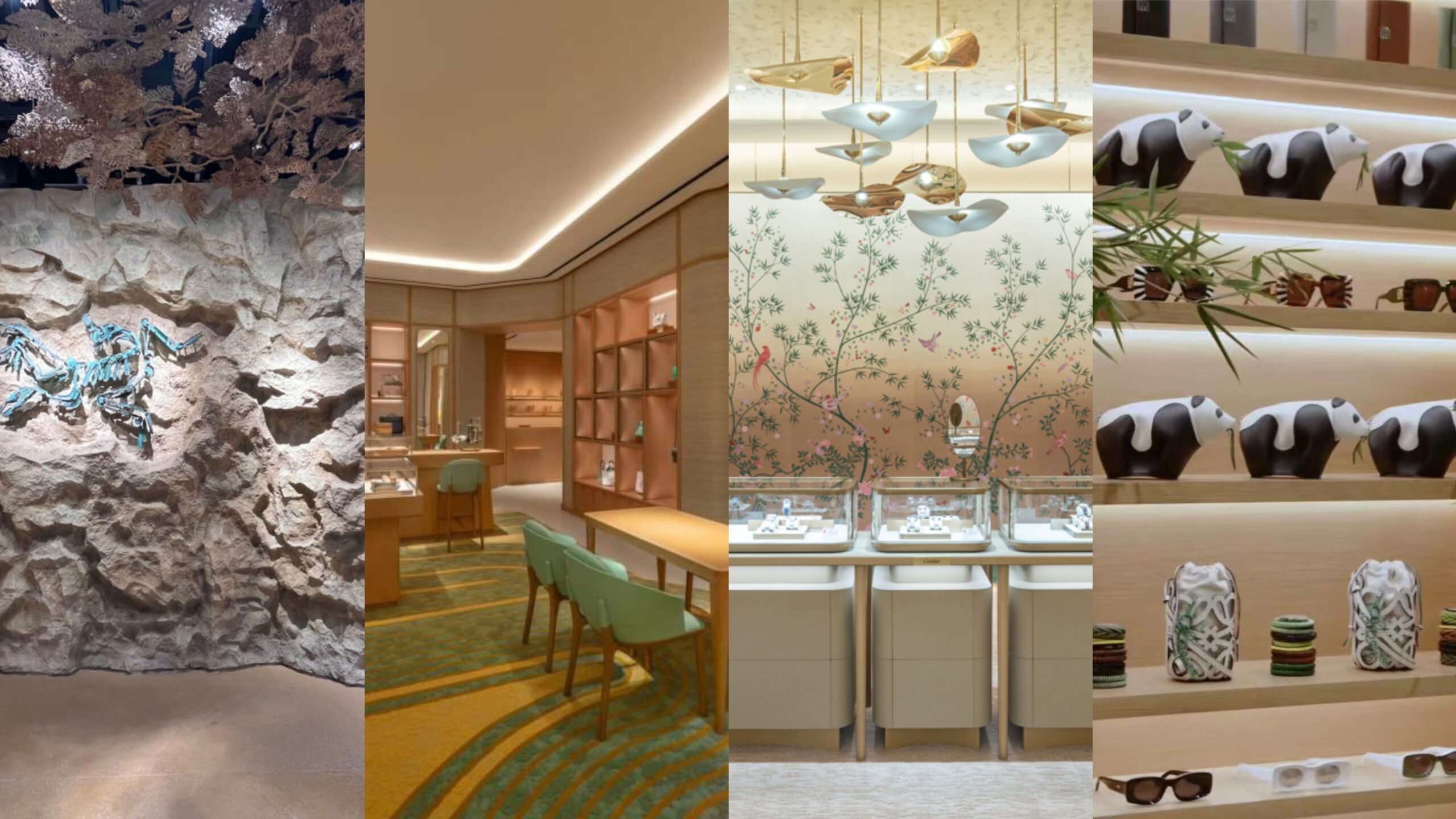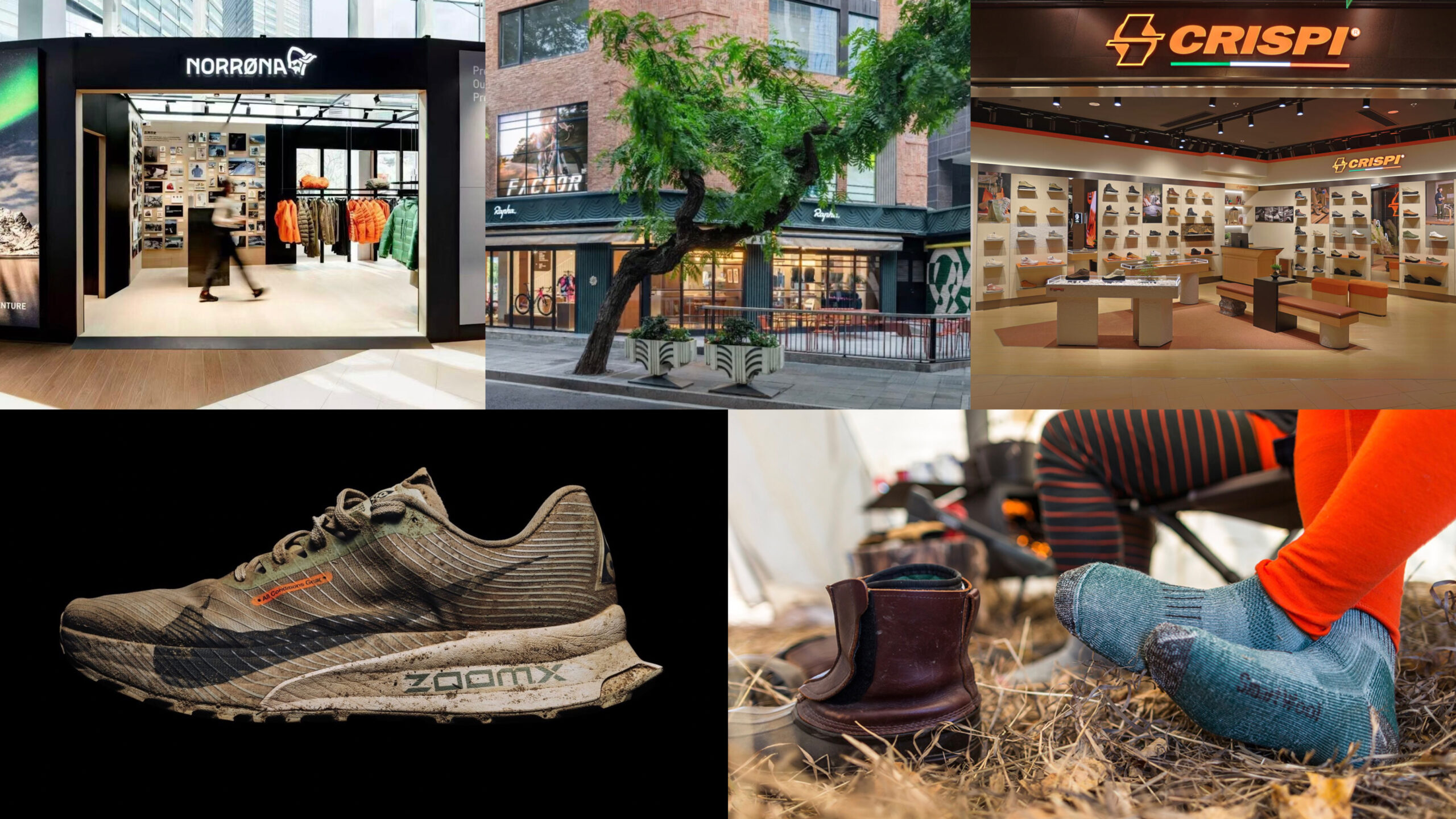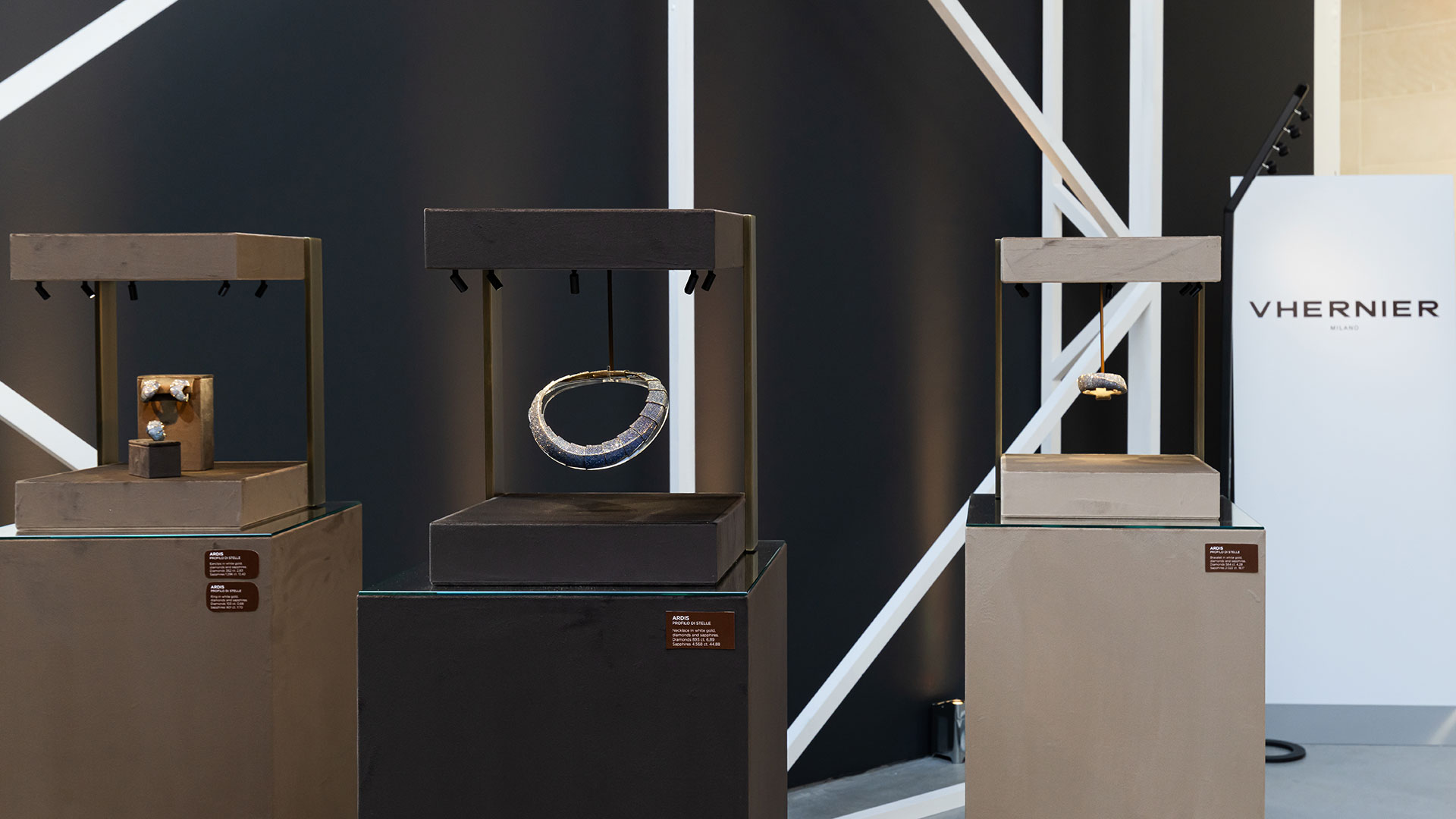Uniqlo has long been a pioneer in focusing on operational efficiency in brand retail. Thanks to its strengths in brand positioning, corporate scale, channel expansion, and store operations, Uniqlo has been able to grasp market dynamics faster and more deeply, capture opportunities, and continually iterate and upgrade its business.
After more than 30 years of dedicated development, Uniqlo now operates over 900 stores in more than 200 cities across the Chinese Mainland, making it one of the most well-known international apparel brands among Chinese consumers.
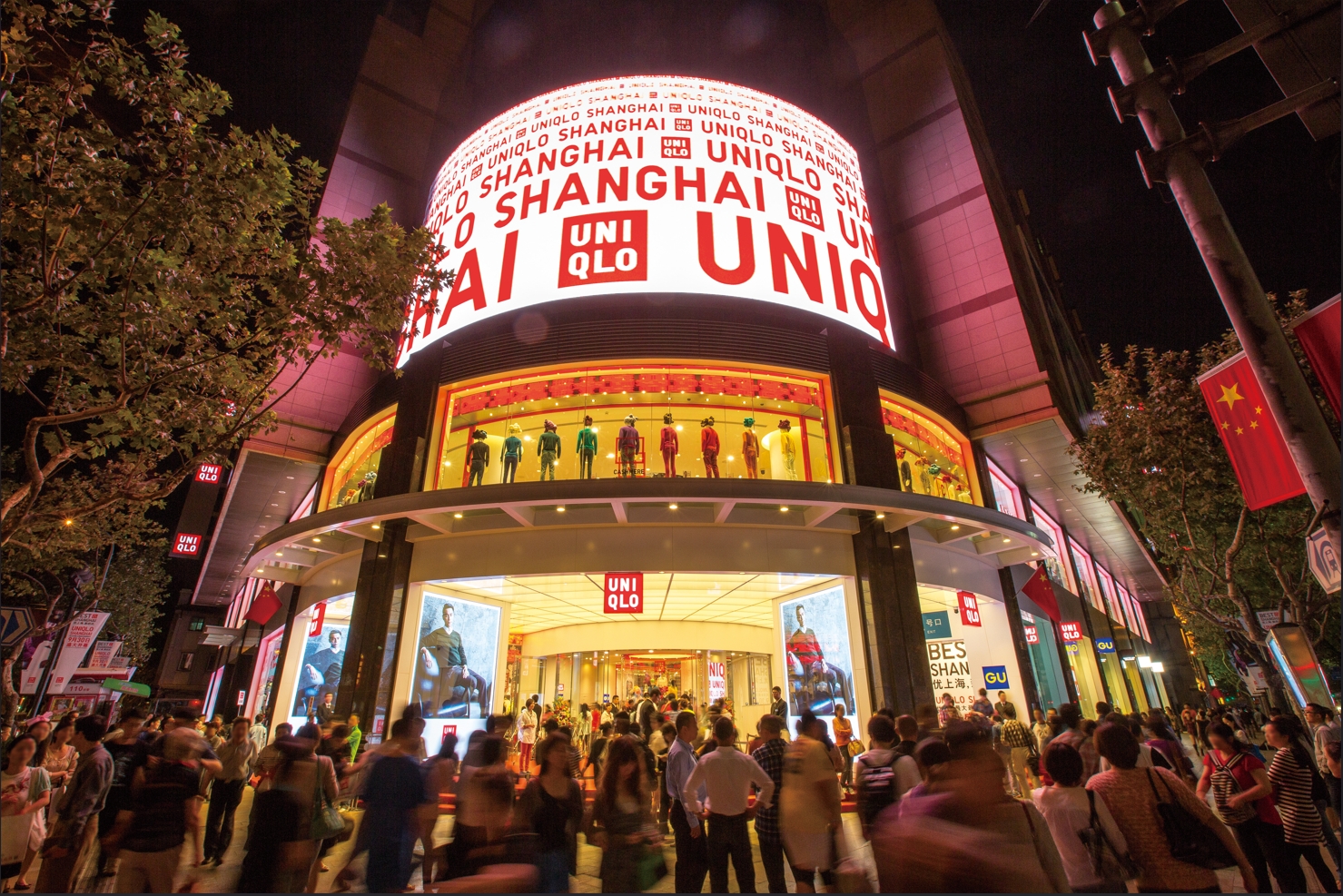
Above: Uniqlo Global Flagship Store on Huaihai Middle Road, Shanghai
Recently, Tadashi Yanai, Chairman and CEO of Uniqlo’s parent company Fast Retailing, commented on the Chinese market, stating that Uniqlo is “entering the next stage of growth.” The Group’s CFO, Takeshi Okazaki, also emphasized efforts to achieve deeper market penetration in China.
“Deeper market penetration” not only indicates improved operational efficiency but also signifies a more refined understanding of individual cities, specific regions, targeted consumer groups, and even individual stores and product categories. Uniqlo is building a more granular operational system around these dimensions.
For example, as temperatures rise across the country, signaling the arrival of summer, Uniqlo recently focused on the women’s summer apparel category. To connect more directly with its female customer base in China, the brand invited LifeWear spokesperson Haruka Ayase to its global flagship store on Huaihai Middle Road in Shanghai.
Looking at the city level, Uniqlo’s presence extends beyond Shanghai into Guangzhou, Chengdu, Wuhan, Kunming, Sanya, and more. In each of these cities, Uniqlo has leveraged local lifestyle characteristics, embedding its stores into daily life through strategic “penetration” into the local consumer fabric.
This article will explore Uniqlo’s refined operational details, especially in terms of “One City, One Store, One Product,” to examine how the brand penetrates the local market at a micro level, scales its investments, and achieves positive feedback.

Above: Haruka Ayase appears at Uniqlo’s Global Flagship Store on Huaihai Middle Road, Shanghai
Uniqlo in “One City, One Store”: How Does It Unearth Local IP and Create a Sense of Local Living?
In the Chinese Mainland, vast landscapes and diverse climates have fostered a rich tapestry of regional cultures. Within these different urban cultures lie the growth opportunities for brands to evolve. Uniqlo integrates into the streets and communities of these cities, becoming part of everyday life. Through deep insights into local cultures, Uniqlo has developed a precise, market-penetrating operational model across China.
- Uniqlo in Shanghai
Take, for example, the Uniqlo Global Flagship Store on Huaihai Middle Road in Shanghai—the venue for this recent event. Opened in 2013, it is Uniqlo’s second global flagship store in the Chinese Mainland. Located in a prime area of Shanghai’s bustling commercial district, the five-floor megastore is Uniqlo’s largest in the country.
The store’s spatial design reflects both Shanghai’s status as an international metropolis and its unique local cultural charm. It aligns perfectly with the city’s refined and stylish lifestyle.
What’s more, the event revealed how Uniqlo is engaging with Shanghai’s unique neighborhood commercial scene.
In Shanghai, neighborhood-based commercial spaces thrive. Small shops tucked along the streets can become viral sensations online, while hidden alleyway stores often draw long queues. From dining to culture, from highbrow to grassroots, all industries are transforming into distinct local IPs, seamlessly blending into community life. These spaces are frequent haunts for residents and hotspots waiting to be discovered by tourists.
In the UTme! “New Humanistic Fun City Connection” series, Uniqlo spotlights these localized commercial IPs on T-shirts—featuring businesses across various sectors like coffee and baking. These collaborative products are available on the shelves of Uniqlo’s Shanghai flagship store for customers to browse and purchase.
Beyond contemporary commercial culture, in June of last year, Uniqlo collaborated for the first time with the Shanghai Museum to launch the “New Ideas for Cultural Treasures: If Bronzes Had Spirits” UTme! series. Using three national treasures from the museum as inspiration, Uniqlo invited five emerging Chinese artists to create original artworks that tell the stories and cultural significance behind these relics, expressing the historic elegance of Chinese civilization.
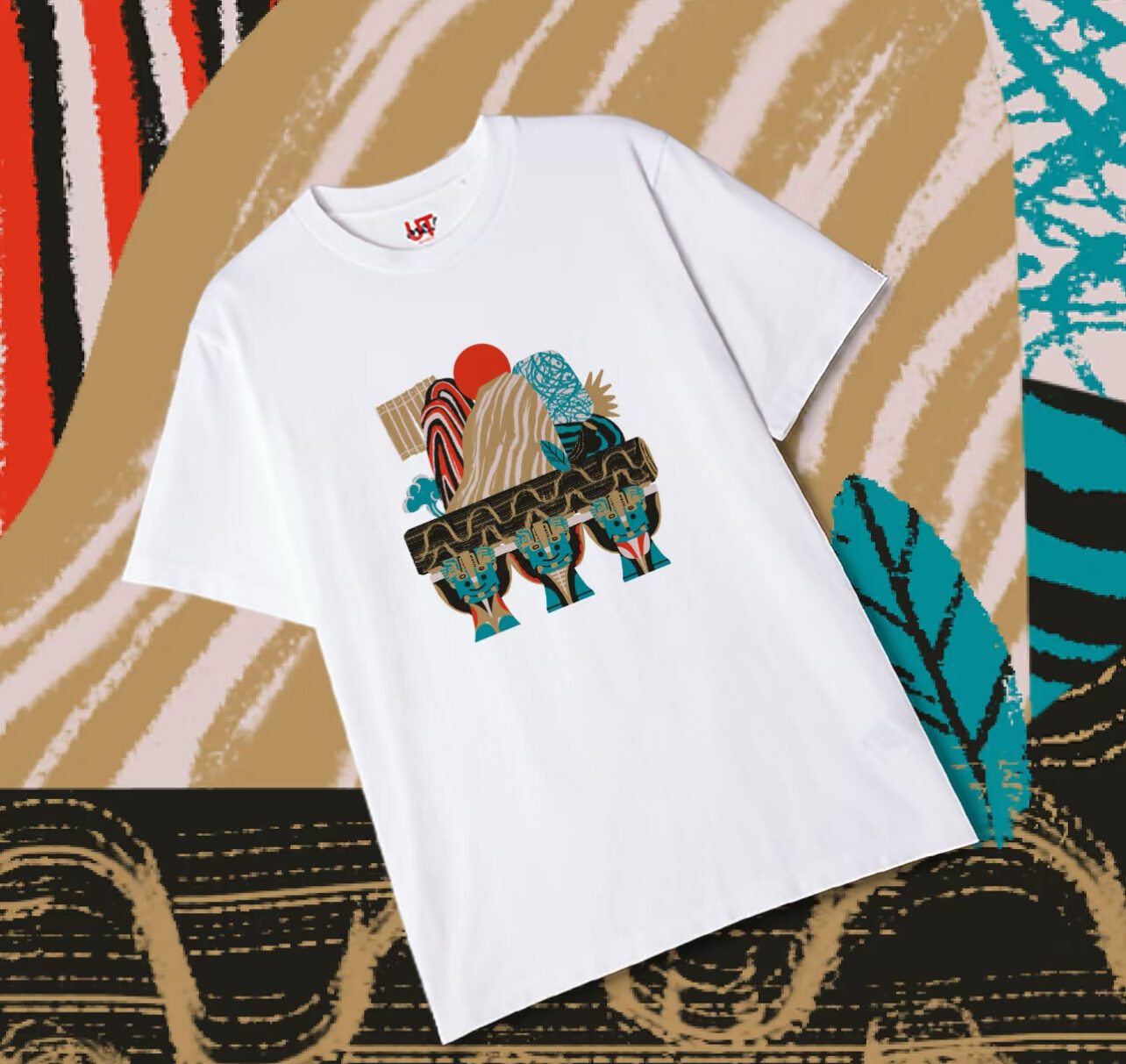
Above: “New Ideas for Cultural Treasures: If Bronzes Had Spirits” Series
- Uniqlo in Chengdu
Shortly after the Shanghai event, Uniqlo is set to open its first city flagship store in Southwest China—the Uniqlo Chengdu MixC store on May 16.
This marks a key move for Uniqlo’s presence in the southwest region. Spanning nearly 2,000 square meters across two floors, the store will feature the latest collections such as the global cultural UT T-shirt series and activewear lines, alongside Chengdu-exclusive localized products and store-only items.
The store also incorporates experiential design elements, including a large LED screen designed by renowned Japanese designer Kashiwa Sato and decorative tile installations, enriching the store’s visual and immersive experience.
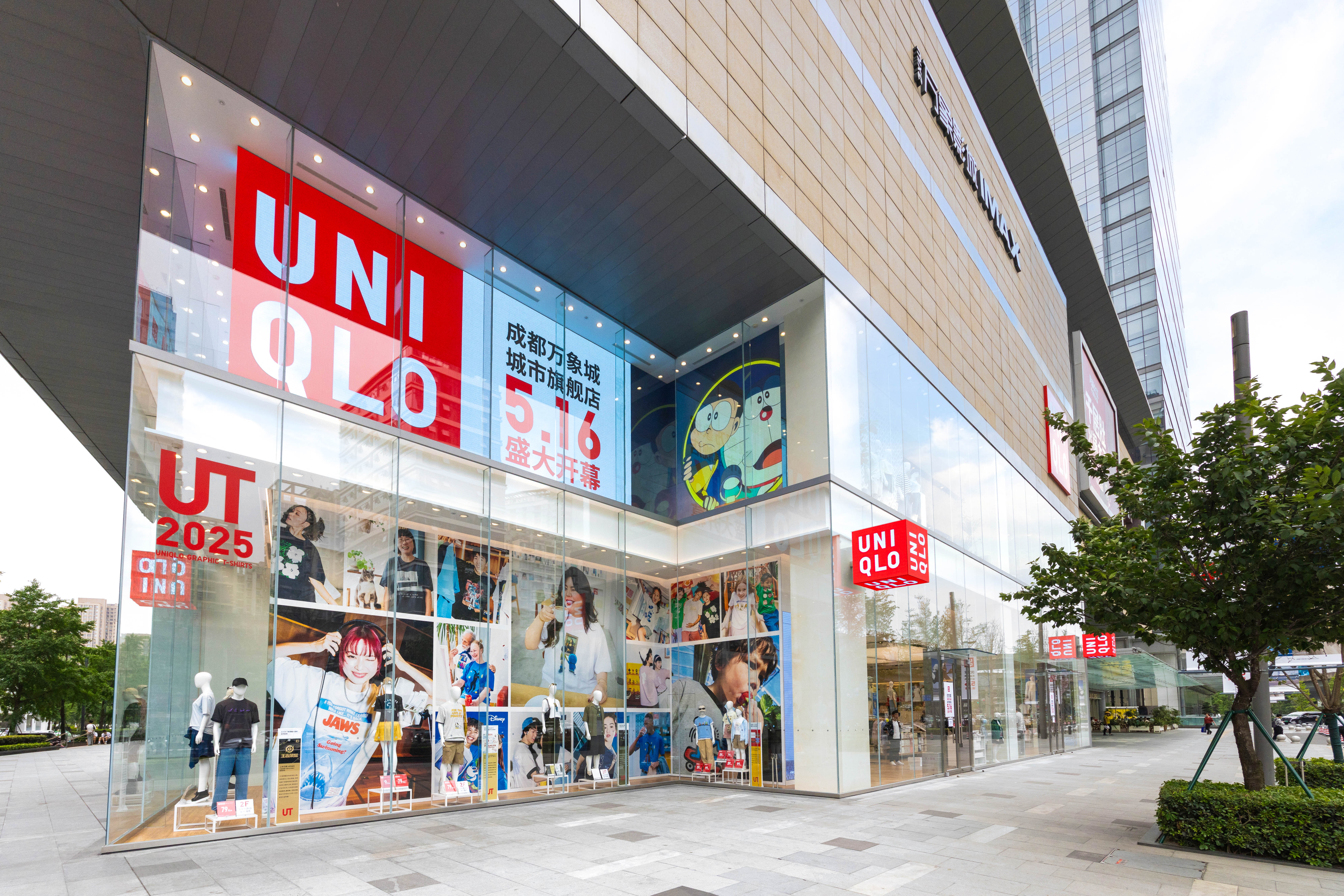
Above: Uniqlo Chengdu MixC Flagship Store, opening May 16
Known as the “Land of Abundance,” Chengdu boasts a rich cultural heritage and a unique local lifestyle shaped by its favorable geography. The relaxed and enjoyable “bashì” way of life embraced by locals fosters a fertile ground for consumer engagement. Chengdu residents are passionate about following trends while also taking pride in reinterpretations of their own culture, history, and arts.
To commemorate the opening, Uniqlo has launched three exclusive product series reflecting local characteristics. These include the UTme! “New Humanistic Fun City Connection (direct translation)” Chengdu edition, featuring iconic local elements like pandas and hotpot; special pieces from the “City Journal” collection, with four Sichuan-Chongqing–inspired prints designed specifically for Chengdu; and the nationwide debut of the new mini-sized dumpling bag.
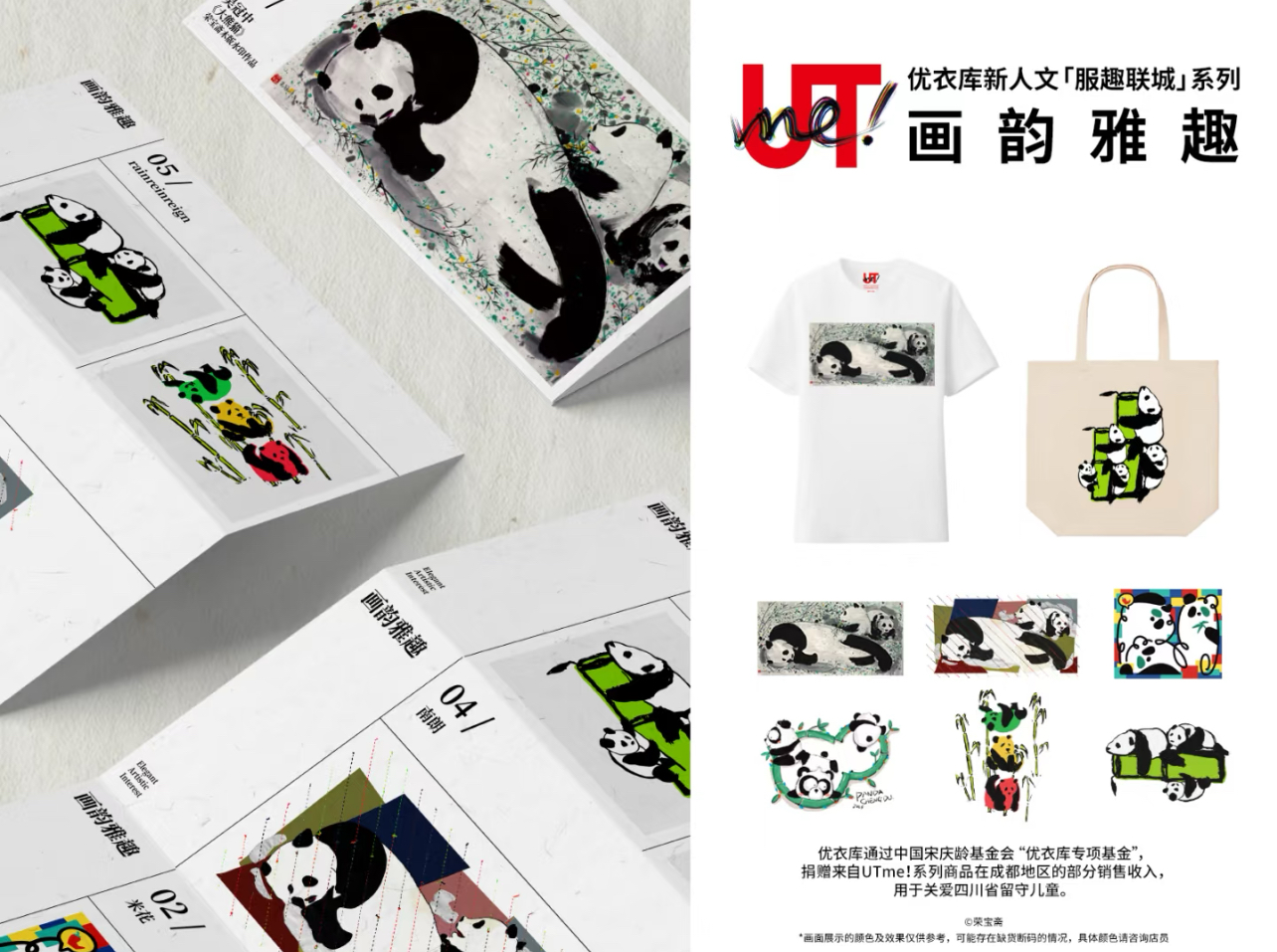
Above: Chengdu-exclusive UTme! “New Humanistic Fun City Connection” collection, jointly created with local brands and artists. Five original designs include “Leisurely Life in Rong City,” “Pet-Friendly Shudu,” “Flavors of Chengdu,” “Artistic Charm,” and “Joyful Touring.” (Note: All names here are directly translated)
To further celebrate the store opening, Uniqlo has prepared three limited-edition Chengdu-themed gifts, including a panda-embroidered dumpling bag, a hand-drawn “Faces of Chengdu” cup, and the release of New Life City Tour Chronicle: Chengdu. In this edition, Uniqlo invited local observers from various fields to guide readers through the unique “bashì” lifestyle from their own perspectives.
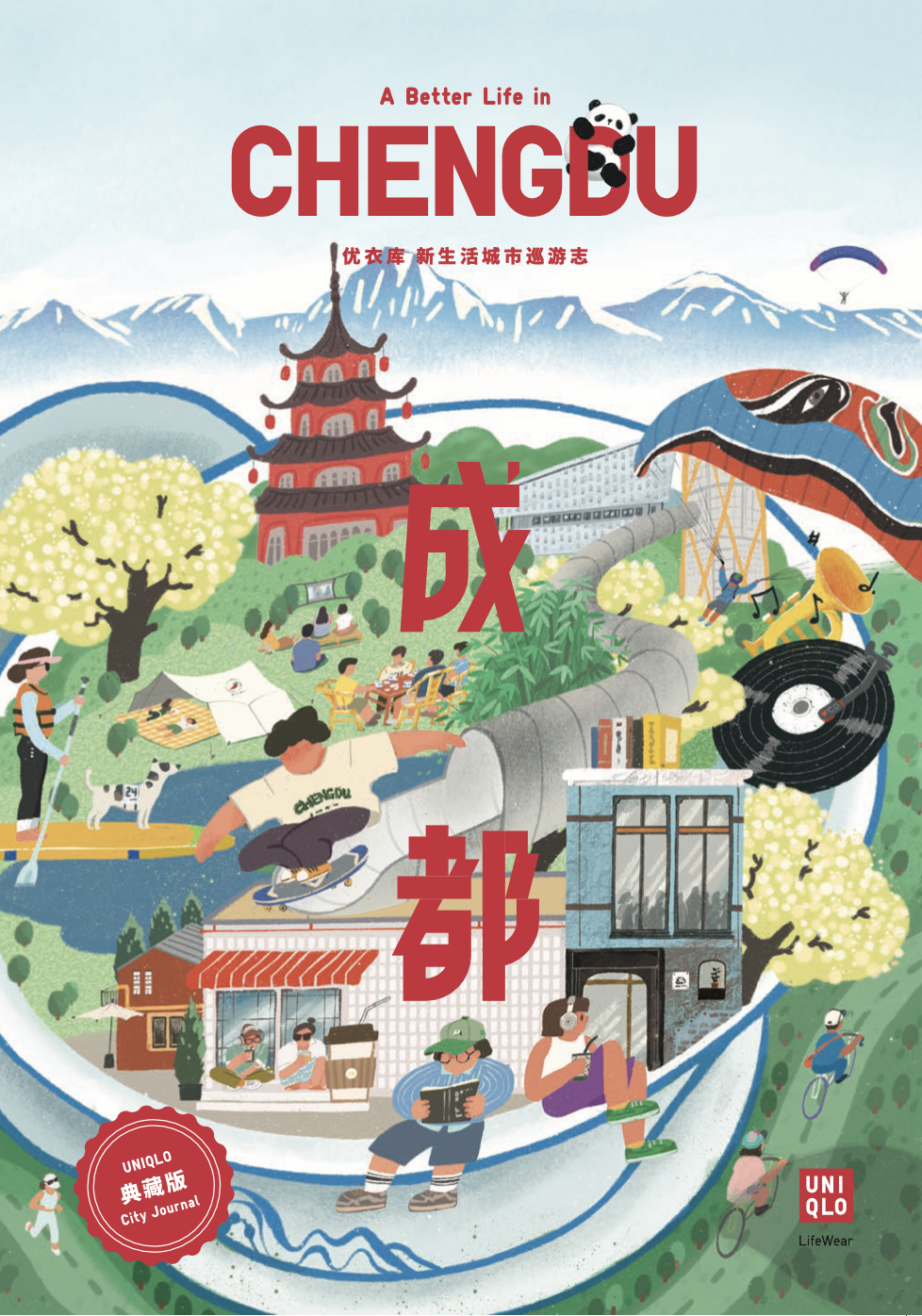
Above: Opening-day exclusive gifts at Uniqlo Chengdu MixC Flagship Store, including A Better Life in Chengdu, City Journal: Chengdu
- Uniqlo in Guangzhou
Unlike the refined atmosphere of Shanghai or the laid-back pace of Chengdu, Guangzhou—located in southern China—exudes a vibrant, down-to-earth energy.
Guangzhou locals are famously passionate about food, dedicated to authentic flavors, and deeply fond of time-honored brands. In terms of fashion, they are known for their unpretentious style, making them a natural fit for Uniqlo’s minimalist aesthetic.
In March, Uniqlo hosted its first “Beautiful Life” market in the outdoor plaza of its Victory Plaza store in Guangzhou. A specially designed “Cantonese Living Zone” offered immersive experiences for local consumers. During the event, Uniqlo also held the “Beautiful Life Forum · Guangzhou Edition” to explore the city’s lifestyle trends, while inviting local creative brands to participate and strengthen community interaction.
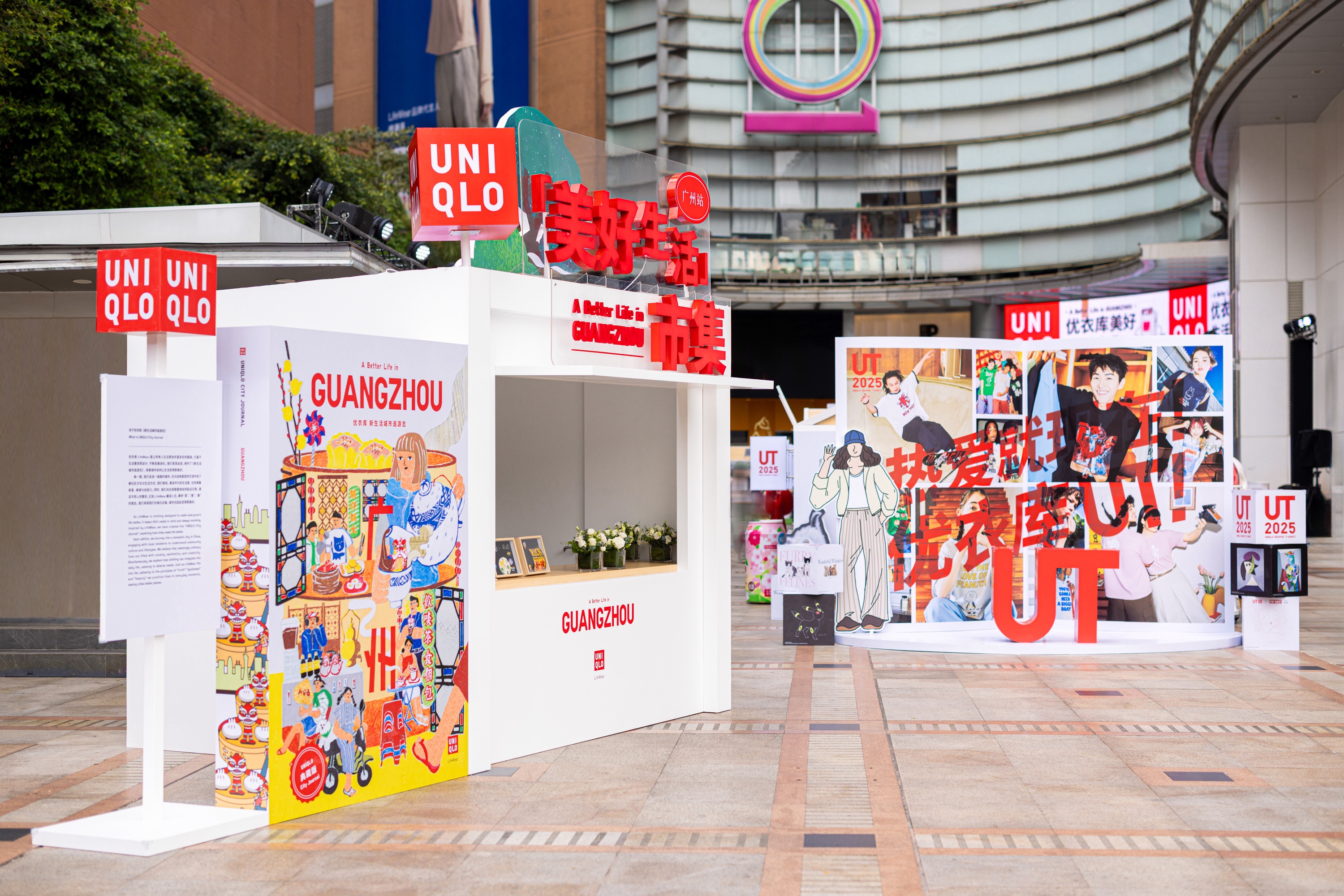
Above: Uniqlo “Beautiful Life” Market in Guangzhou
In April, Uniqlo released the A Better Life in Chengdu, City Journal: Guangzhou, which delved into the city’s historic neighborhoods and emerging lifestyles. The brand invited artists to explore the humanistic fusion of old and new in Guangzhou, while designers shared insights on local food culture and the city’s famously relaxed lifestyle. The publication also featured distinctive shops in busy commercial areas, with a major focus on the region’s signature Lingnan cuisine.
In addition to these city-specific initiatives, the A Better Life in Chengdu, City Journal project is itself a vivid representation of Uniqlo’s refined, city-level operational strategy. The series has already explored cities such as Shanghai, Wuhan, Beijing, Shenyang, Guangzhou, and Chengdu.
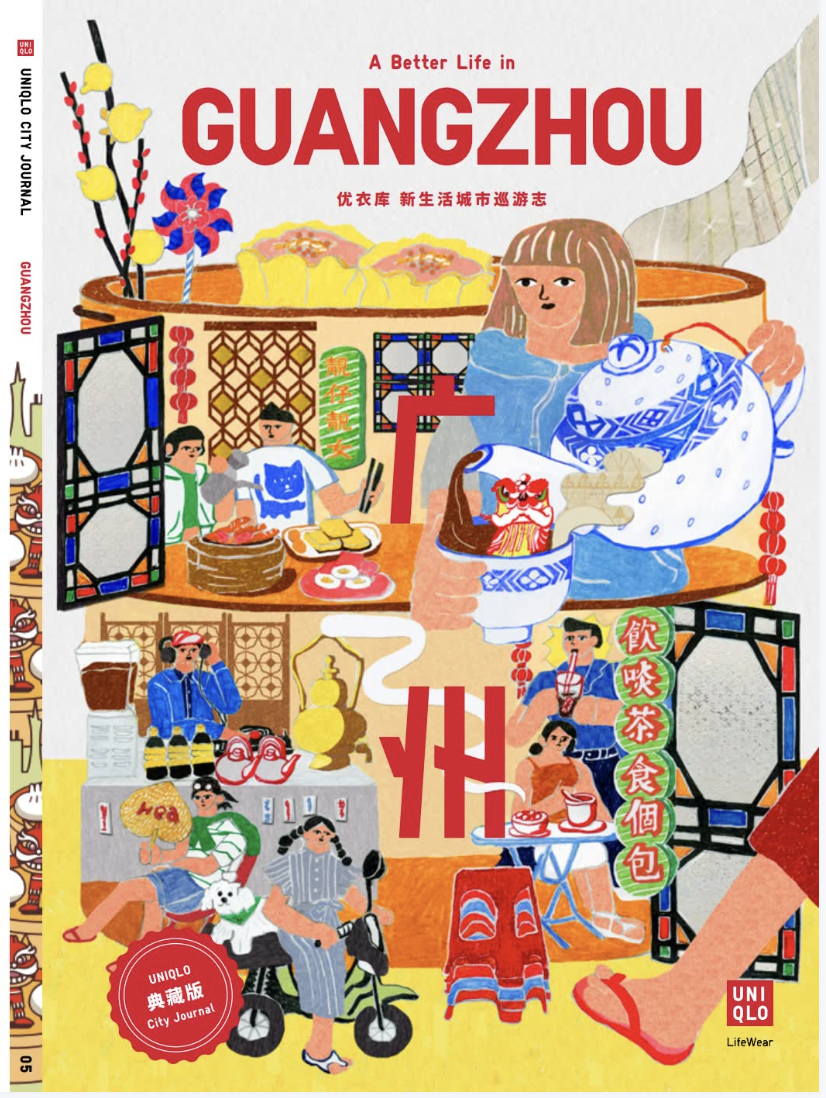
Above: A Better Life in Chengdu, City Journal: Guangzhou
Uniqlo stated, “The Chinese Mainland is vast, and each region has its own climate, culture, and customs. We are transforming our store operations to be more community-oriented, while embodying the characteristics of both a global company and a local business.”
The brand’s deep emotional connection to its local settings has been well received by consumers, who welcome its regional engagement efforts.
By anchoring itself in key cities, Uniqlo is implementing a “single-store strategy” to drive refined service approaches. The company continues to invest in city and global flagship stores, using high-quality store operations to influence entire cities and their surrounding regions. It is reported that Uniqlo will continue to open and upgrade premium stores in cities including Changsha, Xining, and Xuchang this fall.
At the same time, Uniqlo draws from local cultural narratives to gain insight into regional lifestyles, applying differentiated strategies to precisely integrate with the lives of local consumers. By cultivating emotional resonance in each city, the brand aims to become a “preferred choice” in the minds of consumers, anchored in trust and reliance.
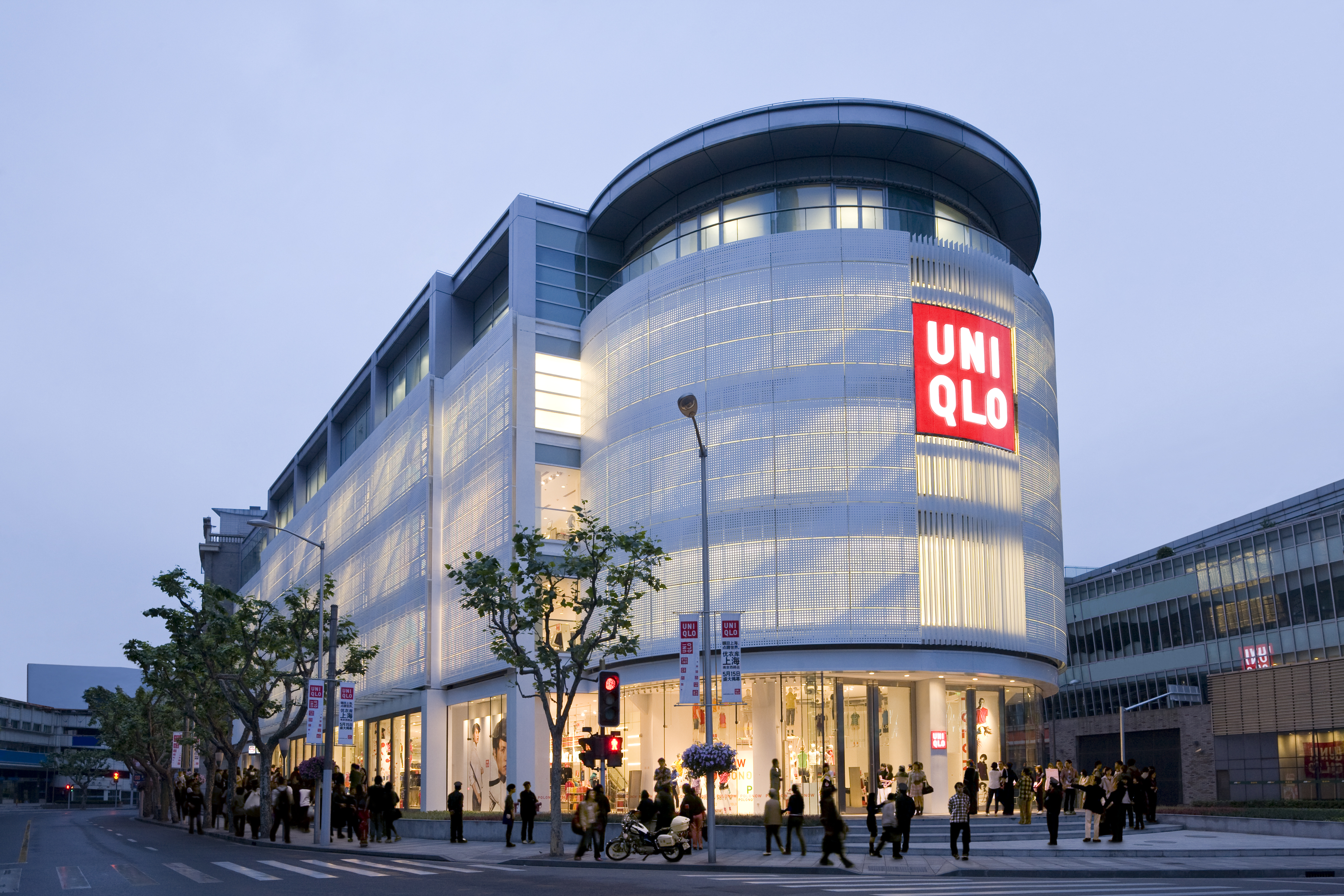
Above: Uniqlo Global Flagship Store on Huaihai Middle Road, Shanghai, opened in 2013. Uniqlo currently operates three global flagship stores in the Chinese Mainland. The other two are located on Nanjing West Road, Shanghai (opened in 2010) and Sanlitun, Beijing (opened in 2021).
Uniqlo’s Ultimate Focus on a Single Product: A Japanese National Star and Summerwear for Women
Whether through deep localization or store-specific management, Uniqlo’s refined operational strategies have, in effect, enhanced both the visibility and competitiveness of its products. This meticulous approach also extends to product development and marketing events.
Take, for example, the recent “Comfort Makes Summer (direct translation)” campaign, a special initiative designed specifically for a targeted customer segment, a single season, and a specific product category.
During the campaign, Haruka Ayase shared her fitness routine and personal lifestyle philosophy, as well as her approach to fashion: “My everyday style leans toward casual and fashionable. If today’s outfit is simple, I might focus more on accessories.”
Renowned for her natural beauty, Haruka Ayase is a beloved actress in Japan whose style and lifestyle choices are widely admired and emulated by her fans.
“Today I’m wearing the Uniqlo BraTop with built-in cups. It’s super casual, and I can just throw it on and head out, very convenient. I’ve layered it with a Uniqlo blazer and added a belt to balance the casual and formal elements of the look.”

Above: Haruka Ayase at Uniqlo Global Flagship Store on Huaihai Middle Road, Shanghai
Comfort, breathability, and coolness are the key qualities women look for in summer clothing. Wearing fewer layers and choosing breathable fabrics that still look stylish is a must, and Uniqlo’s BraTop with built-in cups series answers exactly that demand.
With breathable stretch fabric that stays comfortable even in scorching heat, and features such as contoured cups and an elastic underband, the design fulfills functional innerwear needs while allowing room for fashion. With halter styles and cropped fits that accentuate the figure, the BraTop becomes a statement piece in itself.

Above: Haruka Ayase’s halter neck crop top, designed to flatter and streamline the silhouette
This summer, Uniqlo has upgraded the cooling feel of the BraTop series by launching a new line of AIRism innerwear with built-in cups. At the event, the flagship store featured a display area for the series where customers could feel the smooth, comfortable texture of the new fabric in person.

Above: Product display area for the BraTop with built-in cups series
The new cooling BraTop is made with AIRism fabric jointly developed by Uniqlo and long-time functional textile partner Toray Industries.
Toray is one of the world’s leading providers of high-performance fibers. Tadashi Yanai once commented that “Toray’s revolutionary technology is vital to Uniqlo’s mission of creating LifeWear.”
AIRism is one of Uniqlo’s core product lines, especially known for summer functionality. Since its launch in 2013, the line has gone through more than a decade of iteration and remains a bestseller.
Haruka Ayase also shared her personal experience with AIRism: “I always wear AIRism inner layers under my clothing or T-shirts—it makes the skin feel really cool and refreshed.”

Above: AIRism Cooling Experience Zone
What makes AIRism special is its use of ultra-fine polyester fibers—just one-tenth the diameter of human hair—combined with unique weaving technology. This retains the smooth and silky feel of polyester while addressing common issues such as low moisture absorption and poor breathability. As a result, AIRism garments offer six key functions: coolness, smoothness, quick-drying, elasticity, breathability, and odor control, eliminating sticky or stuffy sensations in summer.
The Uniqlo AIRism series is a cornerstone of its summer lineup, built around this signature cooling fabric. Marketed with the claim of “3-second sweat absorption,” it dries up to 1.9 times faster than 100% cotton, offering a breezy, weightless feel on the skin. Beyond the classic styles, the line also includes cotton-blend and mesh versions—the former adding structure and stretch, the latter offering a more delicate, lightweight touch.

Above: Uniqlo AIRism Collection
In the 2025 summer season, AIRism has also been incorporated into Uniqlo’s sun protection clothing. In response to women’s demand for stylish sun protection in the Chinese Mainland, Uniqlo launched an exclusive cooling sun protection jacket using AIRism fabric, featuring a tailored silhouette and eight trendy light spring colors. This resolves the long-standing trade-off between UV protection, coolness, and fashion.
Staying true to its heritage of tech-driven apparel, Uniqlo’s 2025 summer sun protection line also features yarn-based UV protection with a UPF50+ rating. Unlike conventional coated fabrics, yarn-based protection integrates UV-blocking properties directly into the fiber, resulting in garments with better breathability and wash resistance. For example, Uniqlo’s breathable sun protection jacket retains a verified UPF100+ level even after 100 washes.

Above: Uniqlo Sun Protection Series, UVA shielding rate >95%
“This season’s spring and summer collection offers a very rich color palette with a variety of styles. Wearing these pieces really brightens your mood. Because of all the color options, I feel really happy when I wear them,” said the brand ambassador.
Speaking from the wearer’s perspective, her words bring Uniqlo’s LifeWear philosophy, “Clothing for a better life,” to life for consumers.
Today’s consumers place increasing emphasis on individual experience and subjective feeling in clothing. They care not just about meeting basic functional needs but also whether the garment and the brand align with their fashion ideals, and even life values.
For Uniqlo, technology and design are both means to the same end: serving the wearer.
Putting the customer first has shaped Uniqlo’s deep commitment to understanding and meeting real consumer needs. This principle is reflected not just in its product offerings but also in store content, offline experiences, and market operations. In this sense, Uniqlo’s ongoing refinement of its operations seems not just strategic, but inevitable.
|Image Credit: Provided by Uniqlo
|Editor: Elisa

